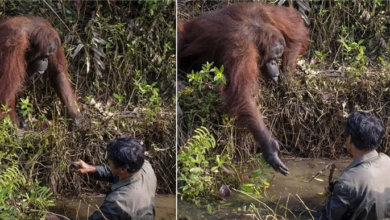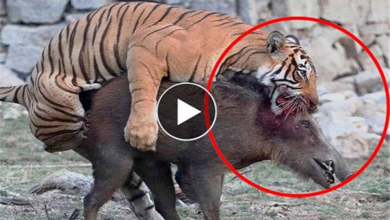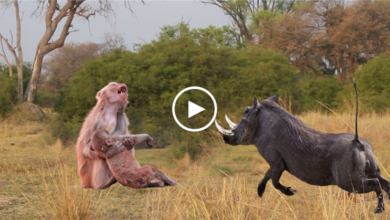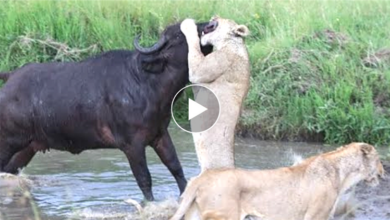Tank-top-wearing “Godzilla” kept at a Thai market balloons because customers feed him fast food, drawing analogies to “Uncle Fatty,” who “ate himself to death.”

After being fed junk food by onlookers, an obese monkey caged in a Thai market grew to an unsafe size.
The deceased Uncle Fatty, a long-tailed macaque who is thought to have eaten himself to death, has been compared to the three-year-old primate Godzilla.
Godzilla was spotted earlier this month in Bangkok’s Min Buri neighborhood, when tourists flocked to the monkey’s booth and tried to feed it.
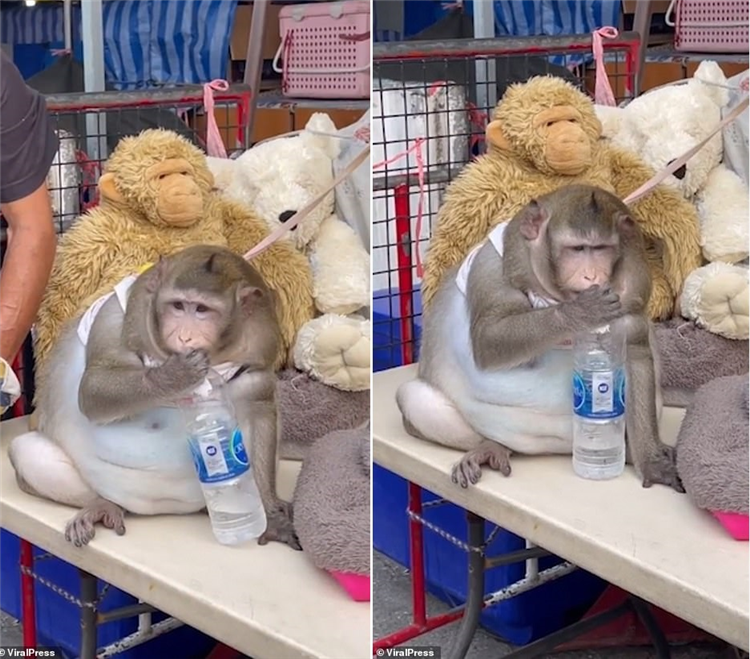
The male monkey, who is chained to the stall, can be seen in a video sporting a form-fitting t-shirt.
Godzilla collapses onto a cushion and gets his back massaged by a guest. A plastic water bottle is then chewed on by the monkey before being thrown aside.
Manop, the shopkeeper, claimed that she adopted Godzilla when the former owner of the store abandoned him.
She claimed that despite feeding and caring for the monkey, she has not been able to regulate his weight.
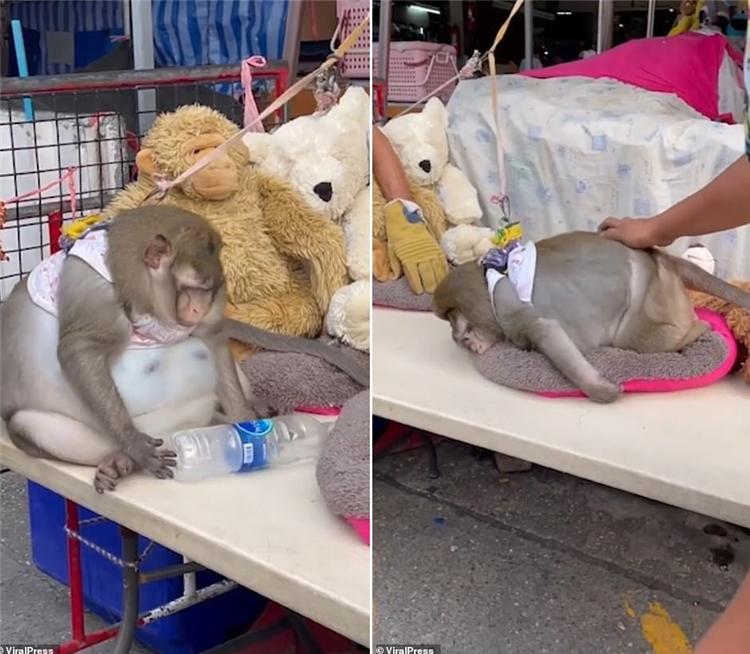
Godzilla was discovered by the rescue squad while he was quite young. Additionally, because he was raised on human food, he lacks the skills necessary to forage for himself in the wild, according to Manop.
At approximately 20 kg, Godzilla is now heavier than Uncle Fatty, who weighed 27 kg and was thought to be between the ages of 10 and 15 at the time.
Macaques often weigh eight to ten kg.
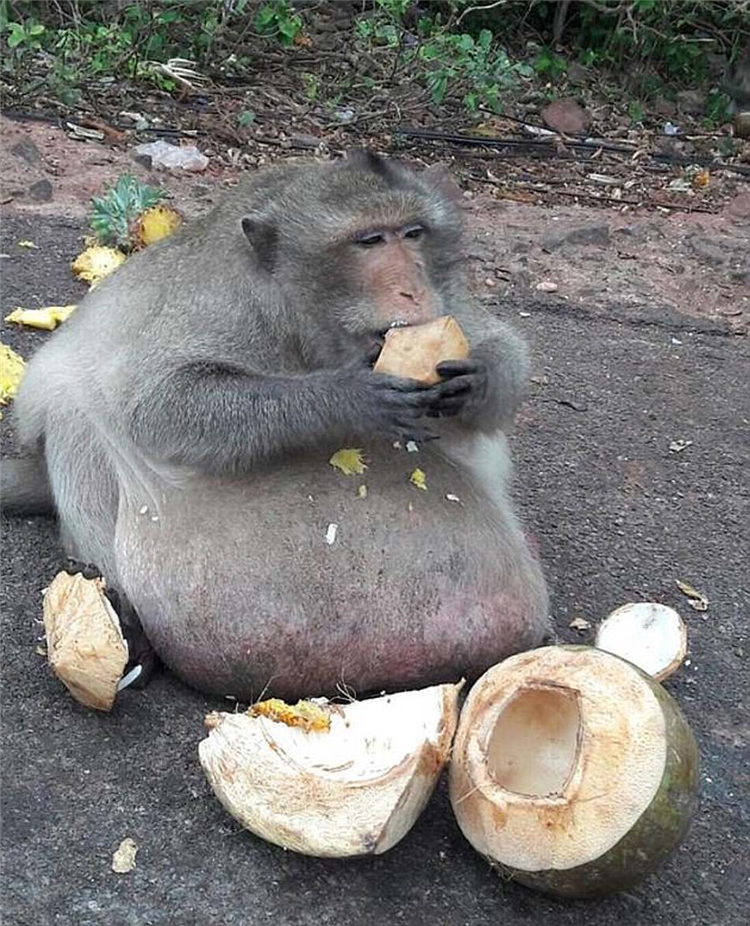
In Thailand in 2017, a wild monkey named Uncle Fatty gained weight after bingeing on fast food provided by onlookers.
The primate was later transferred to a “fat camp,” but it was last heard from in June 2019 and is now believed to have perished.
Godzilla, according to Manop, works out every morning but hasn’t been able to lose the weight.
She continued by saying the monkey dislikes being touched by strangers and would act erratically if it does not get along with them.

Hundreds of thousands of wild monkeys, including gibbons, macaques, langurs, and loris, roam freely across Thailand and are well-liked by tourists.
They frequently coexist with human settlements and have a reputation for stealing food to stay alive.
They can also serve as a tourist attraction, and many people have discovered that they enjoy interacting with people over meals.

